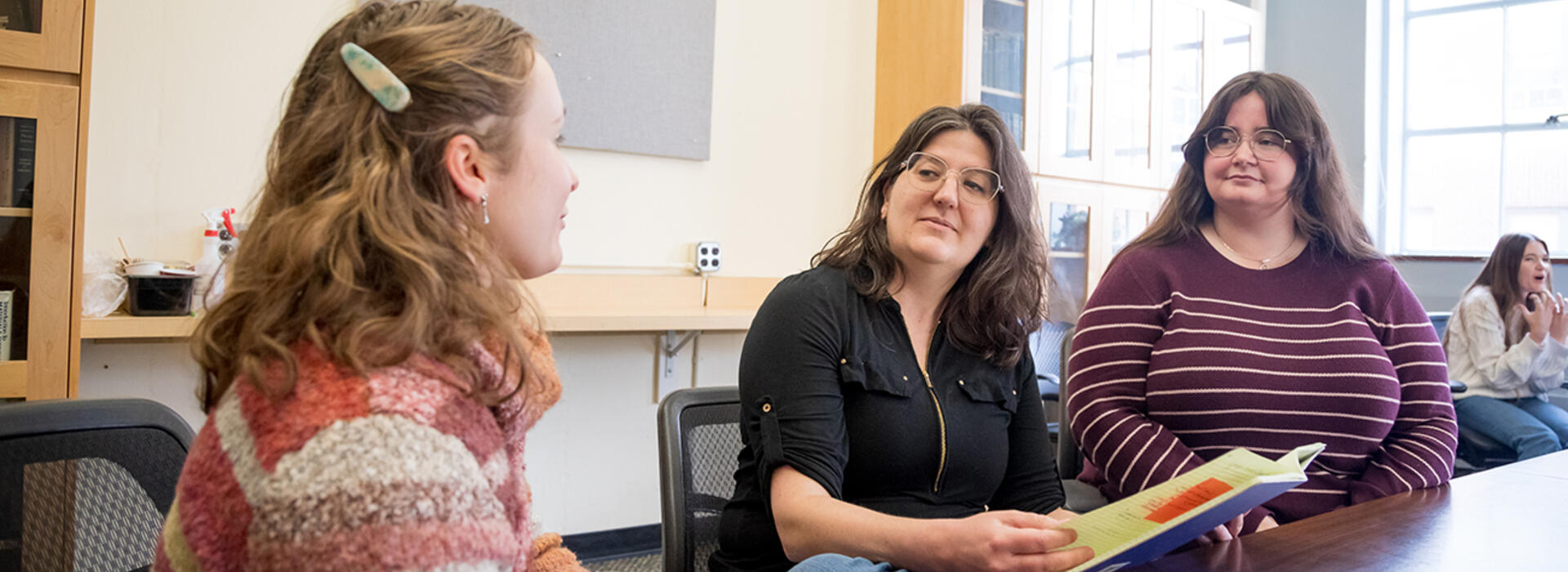Kaitlin Fogg is on a mission to help address the longstanding, historic neglect of women’s health issues in scientific and medical research.
Fogg, assistant professor of bioengineering, has committed her career to developing a better understanding of diseases that primarily affect women – including chronic conditions like endometriosis and life-threatening diseases like cervical and ovarian cancer. Through an innovative program of research in tissue modeling, she and her team are uncovering critical insights, with the goal of improving treatments and outcomes for these and other ailments.
Fogg's journey into the field began during her postdoctoral work on ovarian cancer, where she was shocked by the lack of basic knowledge surrounding the disease.
“I did my Ph.D. in bone tissue engineering and wound healing, two of the oldest tissue engineering fields,” Fogg said. “I didn’t realize how spoiled I had become until I went to do my postdoc. We know the exact mineral content of every bone in the body, because every one of those bones has been studied for generations. But ovarian cancer tissue is treated as medical waste. It just gets thrown away, and nobody has ever really looked at it.”
Until now.
Epithelial 'layer cakes'
The Fogg Lab creates functional 3D models of gynecological tissues, including the cervix, endometrium (uterine lining), and vaginal epithelium. Fogg refers to these tissue models as “layer cakes,” because, like a cake, they are assembled in discrete layers.
Two layers of hydrogel, containing collagen and other proteins, provide structure to the cake and mimic the environment of living tissue. Sandwiched between them is a “filling” made of vascular cells. (This enables researchers to study the formation of new blood vessels, a critical process in tumor growth and metastasis.) The “icing” on top of Fogg’s cake is populated with cells specific to the type of tissue being modeled, such as skin, lung, endometrium, etc.
This approach replicates the complex architecture of tissues, enabling researchers to better study cellular behavior, Fogg says.
“Our main goal is to understand how cells behave within these tissues, both when they're healthy and when they're affected by diseases,” Fogg said. “Ultimately, we want to use these models to identify new drug targets and improve the way we select existing therapies.”
One of the key areas of Fogg's research is understanding how factors like aging, inflammation, and the menstrual cycle affect epithelial tissues. These tissues are the barriers between the body and the outside world, playing a crucial role in protecting against infection and disease.
Many drugs, including those delivered orally, topically, or vaginally, must cross epithelial barriers to reach their target. By understanding how these tissues respond to different factors, Fogg aims to improve drug delivery methods and develop new therapies for gynecological conditions.
The menstrual cycle's impact on drug delivery
In 2022, Fogg received a prestigious Maximizing Investigators' Research Award from the National Institute of General Medical Sciences, a branch of the National Institutes of Health. The five-year, $1.5 million grant, equivalent to the National Science Foundation’s CAREER Award, provides substantial support for Fogg’s research.
In particular, the MIRA funding has enabled in-depth investigation of the effects of the menstrual cycle on drug delivery. Hormonal fluctuations throughout a woman’s cycle can significantly impact epithelial tissues, potentially influencing how drugs are absorbed and metabolized, Fogg explains.
“There just hasn’t really ever been anyone to ask ‘Why is that?’ until now,” she said.
To simulate the menstrual cycle in the layer cake models, Fogg's team carefully adjusts levels of hormones like estrogen, progesterone, and luteinizing hormone over a 28-day period. Their findings indicate that hormonal changes do indeed affect drug delivery, highlighting the need for further investigation.
Endometriosis, nanoplastics, and more
In addition to drug delivery, the Fogg Lab is tackling a range of other women's health challenges, including:
- Endometriosis: This painful condition, which affects roughly 1 in 10 women, occurs when tissue similar to the uterine lining grows outside the uterus.
- Toxicology screening: Fogg's lab is venturing into toxicology screening of menstrual health products like tampons and menstrual cups.
- Nanoplastics and inflammation: In collaboration with Joe Baio, associate professor of bioengineering, Fogg's lab is investigating how nanoplastics shed from menstrual products trigger inflammatory responses in epithelial tissues.
Growing a community
Fogg says that when she first started out, the number of bioengineers dedicated to gynecological disease was so small that literally everyone in the field knew each other, by name, at least. That community has since grown larger, as the importance of women’s health is increasingly recognized by funding agencies and more engineers are entering the field.
“I'm actually very optimistic about the future,” she said. “The community of researchers focused on women's health is growing rapidly, and we're finally starting to get the recognition and funding we deserve.”
Beyond her own research, Fogg is committed to inspiring the next generation of engineers, particularly young women. She involves undergraduate and even high school students in her lab's research.
“One of my biggest hopes is that we can inspire more young women to pursue careers in STEM fields,” she said. “I want them to see that engineering and science can be used to address real-world problems that directly impact their lives. I also hope we can continue to break down the stigma surrounding women's health issues. There’s still a lot of work to be done, but I’m excited to see what the future holds.”





